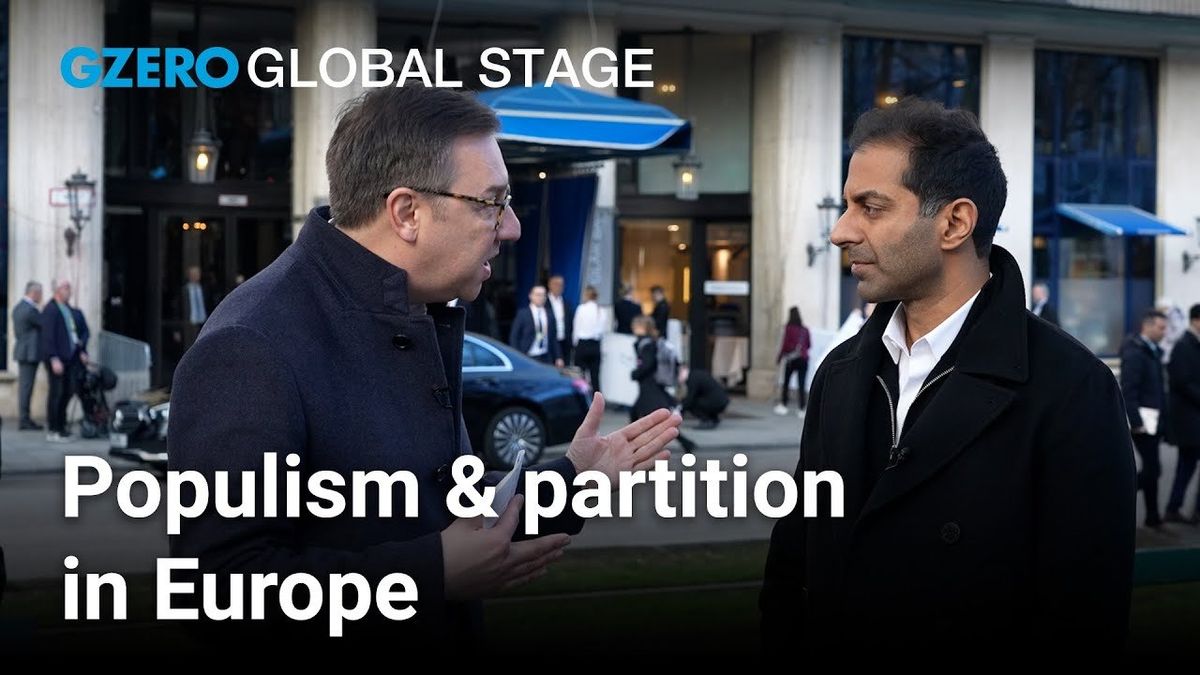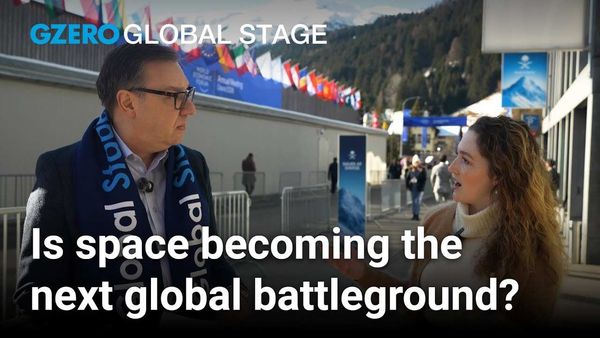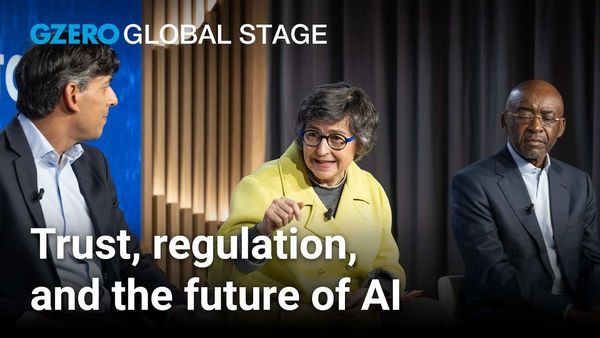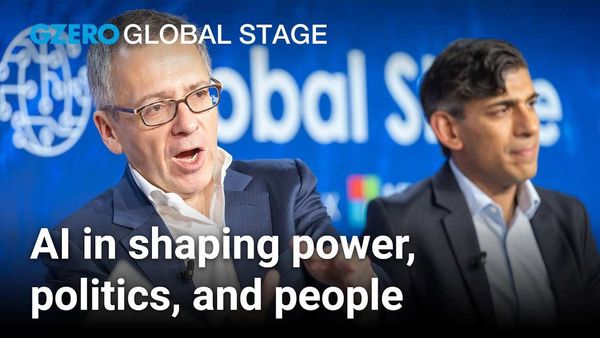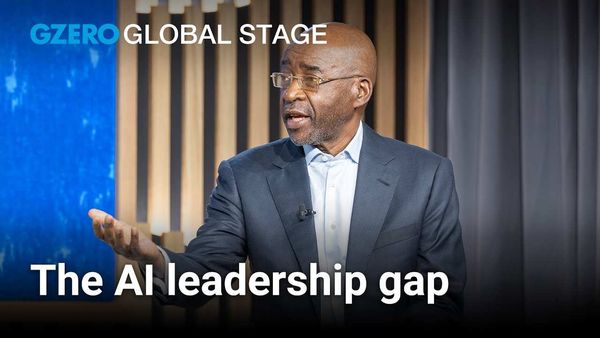GZERO’s Tony Maciulis joins Mujtaba Rahman, Eurasia Group's Managing Director for Europe, on the sidelines of the Munich Security Conference to discuss the pressing political and economic situation in Europe. Rahman looks ahead to the EU Parliament's upcoming elections, highlighting concerns over populist party performance. “[Populists] will certainly be better represented” Rahman tells Maciulis, “but that being said, the impacts on policy will be marginal at best.”
Rahman also delves into Europe’s economic challenges, citing bleak growth forecasts and Germany's fiscal constraints. “The overall picture is an economy really in the doldrums, not performing…basically flat." Discussing Ukraine, Rahman underscores the risk of partition and stresses the importance of Western integration for Ukraine's ultimate failure or success against Russia. Rahman also raises concerns over the potential impact of a Trump presidency on transatlantic relations. “Is Trump signaling an invitation to Russia and others to probe and to test? That's really where the concern lies."


